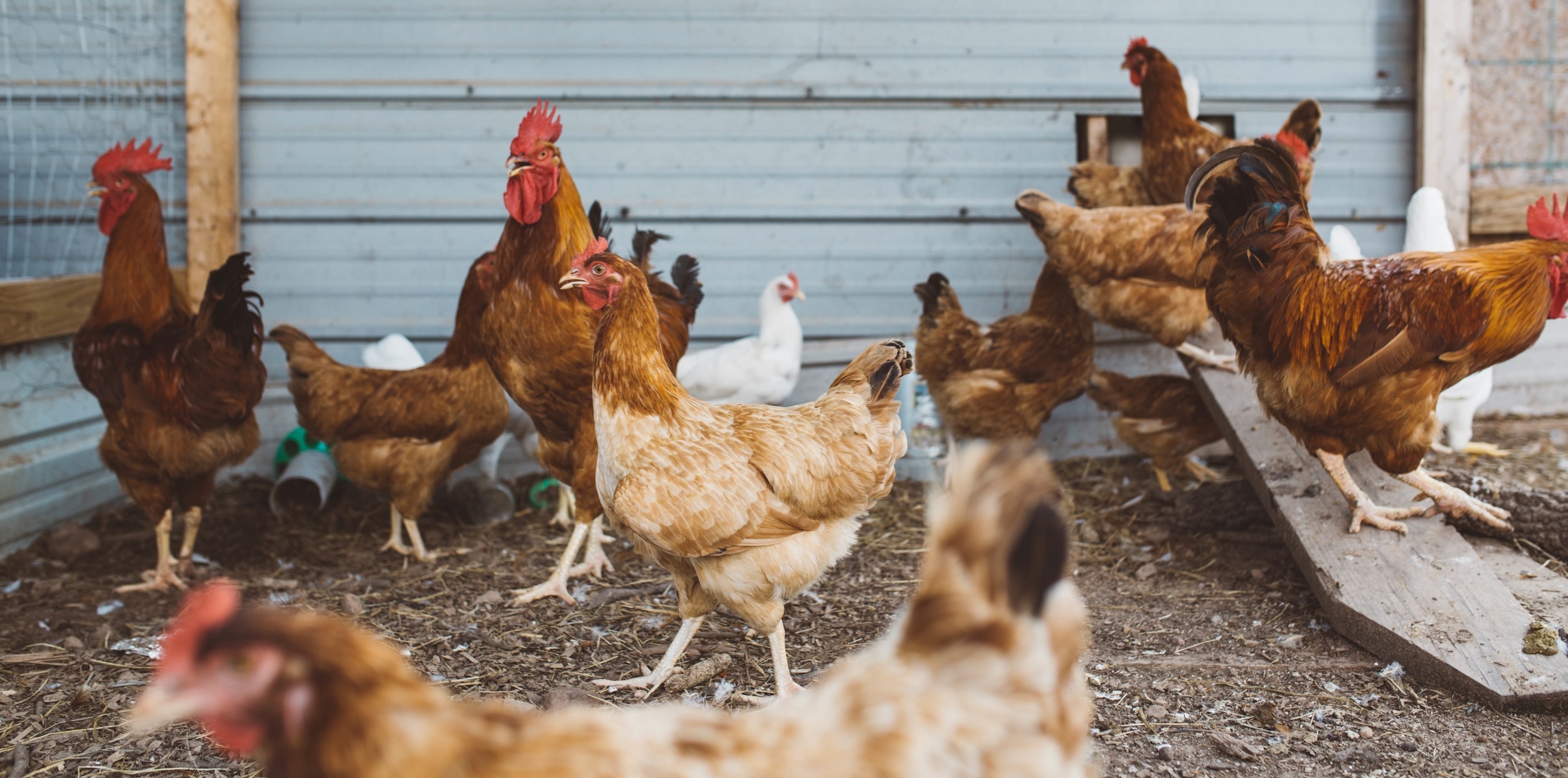These days egg labels are a dime a dozen. From vegetarian-fed to all natural, marketing lingo might lead you to believe chickens have jumped onto the fad diet bandwagon.
The reality? About 90% of laying hens are fed mixtures of animal byproducts and corn. The same 90% are housed in battery cages with 67 square inches of room (marginally smaller than a sheet of printer paper). These aren’t the glossy facts you’ll find labeled on your carton.
To help you separate the bad eggs from the good, we’ve broken down a dozen common egg labels, and where they fall:
The Good
USDA Organic
According to this nationally regulated standard, hens are kept outside of cages with access to the outdoors. Hens are also fed organic, vegetarian diets that are antibiotic and pesticide free.
Pastured/Pasture Raised
Pasture raised hens spend most of their lives outdoors with sufficient space to roam, not to mention access to a barn. Although the organic level of each hen’s feed is unregulated, they can eat worms, insects, grass, and corn, all part of a chicken’s natural diet.
Certified Humane
Though outdoor and free roaming standards are differentiated for pastured, free-range, and cage-free ratings, all Certified Humane eggs prohibit animal byproducts in feed, beak cutting, and forced molting.
Animal Welfare Approved
Ranging and foraging is required for these hens, meaning they enjoy continuous access to an outdoor area covered in vegetation. Hens protected under this label never consume animal byproducts in their feed and never experience forced molting or beak cutting.
The Vague
Vegetarian-Fed
This standard prohibits animal byproducts in feed given to chickens. In practice, this often means chickens subsist on a fortified corn diet. Why is this vague? The label makes no claims about the conditions in which chickens are raised, and furthermore, chickens are naturally omnivores.
Cage-Free
Chickens are raised outside of battery cages, notably better off than their caged brethren with room to roam and spread their wings. However, this label does not require outdoor access, does not regulate beak cutting, antibiotic use, or the quality of feed. What’s most vague about Cage-Free labeling? No independent third party offers certification for this claim. Producers are merely taken for their word.
Free-Range
Free-Range chickens must have access to the outdoors, a small step up from Cage-Free, though the duration and quality of that access is unspecified (a short period of time on a concrete still counts, to put this into perspective). Feed, beak cutting practices, and antibiotic use all remain unregulated, and this claim also has no third party regulator.
The Ugly
United Egg Producers Certified
Developed by a cooperative that represents 95% of egg laying farms in the country, these completely voluntary standards fail to address battery cages, feed quality, use of antibiotics, animal welfare, and responsible manure management. Egg cartons boasting this label might as well be unlabelled.
Farm Fresh
This unregulated label is merely a marketing gimmick employed by egg producers to create a favorable family-farm image in the minds of consumers.
All Natural
Another label that’s mere marketing, “natural” implies that eggs haven’t undergone any unnatural processes. This offers no commentary or regulation on how the chickens were raised, fed, or treated.
Hormone Free
This marketing ploy misleads consumers. Federal law prohibits farms from giving hormones to poultry, so no U.S. farms of any scale do so. There’s nothing special about these eggs.
Antibiotic Free
While this label guarantees that feed and water have not been treated with antibiotics during any stage of the hen’s life cycle, it is little more than another marketing gimmick. Egg laying hens, unlike chickens raised for their meat, are rarely given antibiotics.







